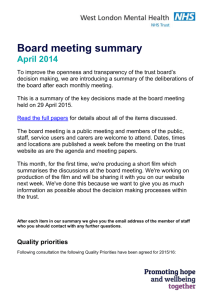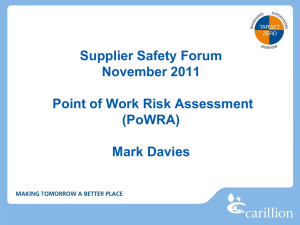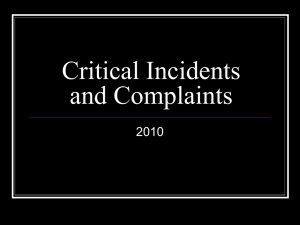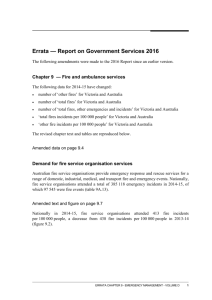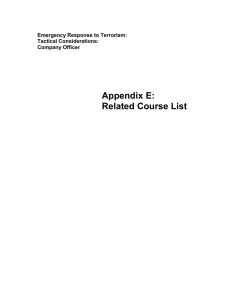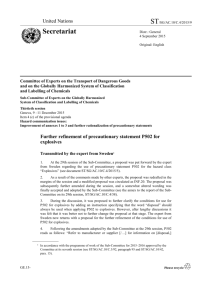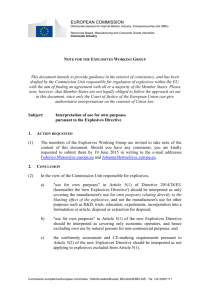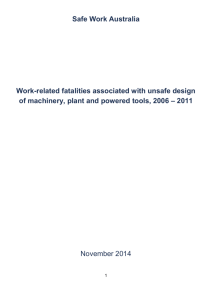Emergency Management Policy
advertisement
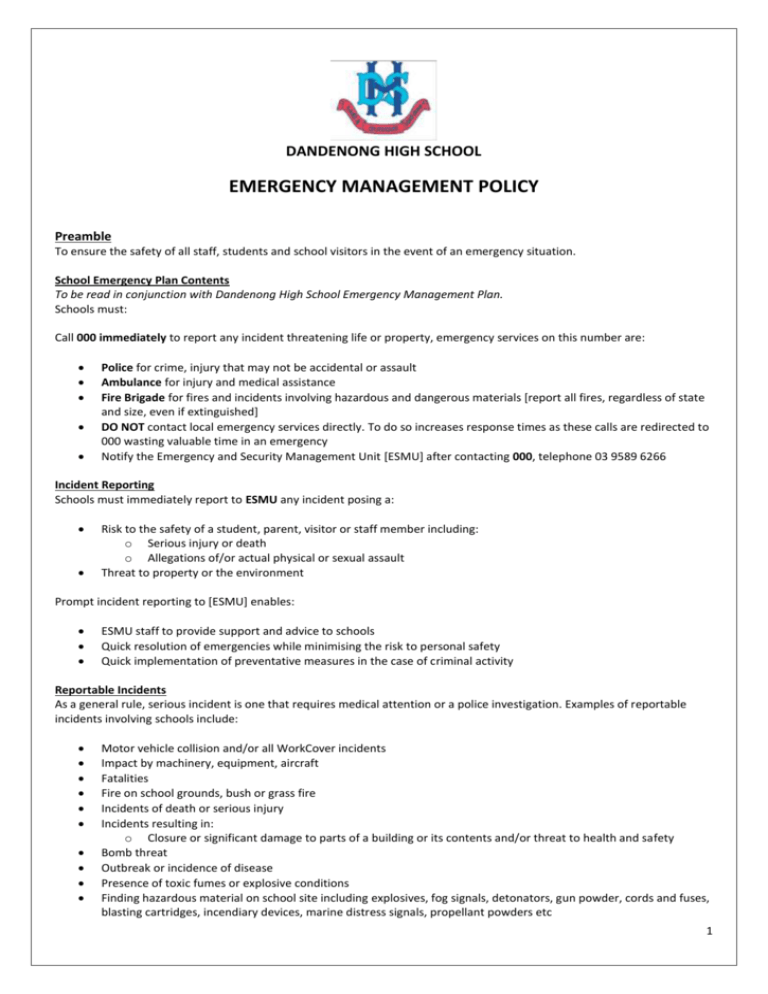
DANDENONG HIGH SCHOOL EMERGENCY MANAGEMENT POLICY Preamble To ensure the safety of all staff, students and school visitors in the event of an emergency situation. School Emergency Plan Contents To be read in conjunction with Dandenong High School Emergency Management Plan. Schools must: Call 000 immediately to report any incident threatening life or property, emergency services on this number are: Police for crime, injury that may not be accidental or assault Ambulance for injury and medical assistance Fire Brigade for fires and incidents involving hazardous and dangerous materials [report all fires, regardless of state and size, even if extinguished] DO NOT contact local emergency services directly. To do so increases response times as these calls are redirected to 000 wasting valuable time in an emergency Notify the Emergency and Security Management Unit [ESMU] after contacting 000, telephone 03 9589 6266 Incident Reporting Schools must immediately report to ESMU any incident posing a: Risk to the safety of a student, parent, visitor or staff member including: o Serious injury or death o Allegations of/or actual physical or sexual assault Threat to property or the environment Prompt incident reporting to [ESMU] enables: ESMU staff to provide support and advice to schools Quick resolution of emergencies while minimising the risk to personal safety Quick implementation of preventative measures in the case of criminal activity Reportable Incidents As a general rule, serious incident is one that requires medical attention or a police investigation. Examples of reportable incidents involving schools include: Motor vehicle collision and/or all WorkCover incidents Impact by machinery, equipment, aircraft Fatalities Fire on school grounds, bush or grass fire Incidents of death or serious injury Incidents resulting in: o Closure or significant damage to parts of a building or its contents and/or threat to health and safety Bomb threat Outbreak or incidence of disease Presence of toxic fumes or explosive conditions Finding hazardous material on school site including explosives, fog signals, detonators, gun powder, cords and fuses, blasting cartridges, incendiary devices, marine distress signals, propellant powders etc 1 Fumes, spill, leak or contamination by hazardous material Flood, windstorm, earthquake or other natural disasters Criminal activity such as suspicious person/s and/or vehicles, vandalism, burglary, graffiti, theft, fraud, property damage Neighbourhood complaint Missing/disappearance/removal of student/s including: o Unauthorised/unexplained absenteeism from school o Unauthorised absenteeism resulting in a missing persons report Firearms, weapons or bomb threat Behaviour of a student, visitor or staff member that could lead to potential risk to someone else Serious threats made against a person Siege or hostage situation Need for evacuation or lockdown Unethical staff behaviour, particularly if it involves taking advantage of a student, visitor or staff member Issues of negligence or legal liability Near misses: incidents that very nearly lead to injury or death e.g. hazardous conditions observed/near misses Important: Schools should not handle any explosives found at school. However if it is necessary to remove explosives from a student’s possession, avoid bumping, striking or dropping the object. Place the object gently in an isolated position; ensure it is not exposed to any form of heat/ignition and wait for the police. Note: Schools should also report any nuisance activity which may not have led to damage, but could lead to crime at a future time. Bomb Threats: i. Call police on 000 ii. Notify ESM on 03 9589 6266 iii. Implement the school’s Emergency Management Plan iv. DO NOT search for the bomb v. DO NOT allow a search by students or staff vi. DO NOT impede an explosives inspector from entering school premises Note: An inspector of explosives may interview students at school on the same basis as a police interview. Reporting Fires All fires, including those that have been extinguished and regardless of their size, must be reported to the relevant fire service for the particular locality by contacting 000 and ESMU. Helicopter landings in schools in an emergency The Department has given a general authorisation for the use of school grounds as helicopter landing sites during emergencies for the: air ambulance, fire reconnaissance or crime prevention. The urgent nature of an emergency may preclude advance notification. The pilot is responsible for ensuring that the: Area chosen for landing is suitable Safety of those on the ground is not compromised If a landing occurs during school hours, students must remain at a safe distance, clear of the departure and approach paths. Evaluation: This Policy will be reviewed every 3 years School Council Endorsement Date: 18TH November 2014 2

